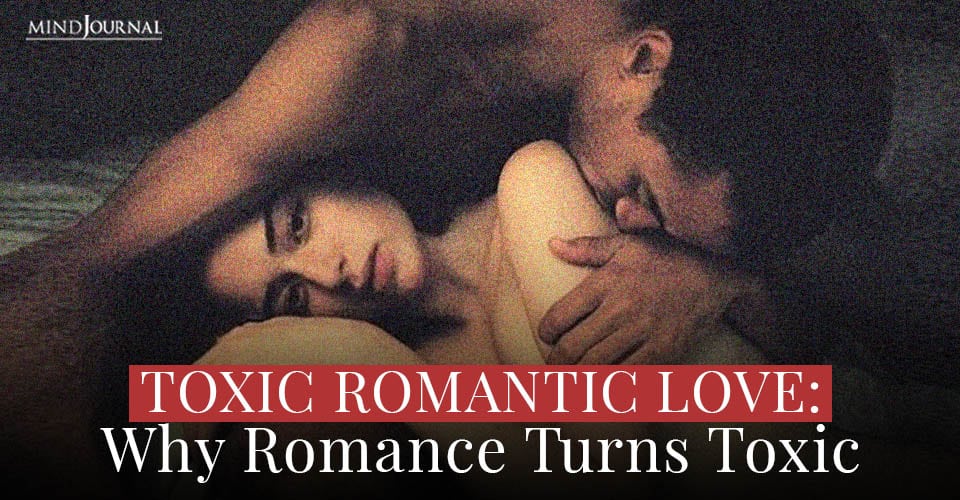Are you feeling shocked because your partner is giving you silent treatment or behaving in strange ways that you never expected? This is what you should know about toxic romantic love.
Most of us want to fall in love, especially codependents. To us, love is perhaps the highest ideal, and relationships give our lives meaning and purpose.
They enliven and motivate us. A partner provides a companion when we have difficulty initiating action on our own. Being loved also validates our sense of self-esteem, overcomes shame-based doubts about our lovability, and soothes our fears of loneliness.
But too often a beautiful romance turns sour. What was a wonderful dream becomes a painful nightmare? Ms Perfect or Mr Right becomes Ms. or Mr Wrong.
The unconscious is a mighty force. Reason doesn’t seem to stop us from falling in love, nor make it any easier to leave! Even when the relationship turns out to be a toxic romantic love, once attached, ending the relationship is as hard as falling in love was easy!
The Chemistry of Romance and Falling in Love
Our brains are wired to fall in love – to feel the bliss and euphoria of romance, to enjoy pleasure, and to bond and procreate.
Feel-good neurochemicals flood the brain at each stage of lust, attraction, and attachment. Particularly dopamine provides natural high and ecstatic feelings that can be as addictive as cocaine.
Deeper feelings are assisted by oxytocin, the “cuddle hormone,” released during orgasm. It’s directly linked to bonding and increases trust and loyalty in romantic attachments.
Related: The Honest Truth About Life After A Toxic Relationship
The Psychology of Romantic Love – Whom We Find Attractive
Psychology plays a role, too. Our self-esteem, mental and emotional health, life experiences, and family relations all influence whom we’re attracted to.
Experiences, both positive and negative, impact our choices and make someone appear more or less attractive. For example, we might find commonality attractive, but avoid someone who cheated on an ex if that has happened to us before.
We’re attracted to subtle physical attributes, albeit unconsciously, that reminds us of a family member. More mysterious, we can be attracted to someone who shares emotional and behavioural patterns with a member of our family even before they become apparent.
The Ideal Stage of Romance
It’s true that we’re blinded by love. Healthy idealization is normal and helps us fall in love. We admire our beloved, are willing to explore our partner’s interests, and accept his or her idiosyncrasies.
Love also brings out parts of our personality that were dormant. We might feel manlier or more womanly, more empathic, generous, hopeful, and more willing to take risks and try new things.
In this way, we feel more alive, because we have access to other aspects of our ordinary or constricted personality. Additionally, in early dating, we’re usually more honest than down the road when we become invested in the relationship and fear speaking our truth might precipitate a breakup.
Although healthy idealization doesn’t blind us to serious warning signs of problems, if we’re depressed or have low self-esteem, we’re more likely to idealize a prospective partner and overlook signs of trouble, such as unreliability or addiction, or accept behavior that is disrespectful or abusive.
The neurochemicals of romance can lift our depressed mood and fuel codependency and love addiction when we seek a relationship in order to put an end to our loneliness or emptiness.
When we lack a support system or are unhappy, we might rush into a relationship and become attached quickly before really knowing our partner. This is also referred to as “love on the rebound” or a “transitional relationship” following a breakup or divorce. It’s far better to first recover from a breakup.
Related: 6 Telltale Signs Of The Most Toxic Relationship Of All
The Ordeal Stage of Romance
After the initial ideal stage, usually starting after six months, we enter the ordeal stage as we learn more things about our partner that displease us.
We discover habits and flaws we dislike and attitudes we believe to be ignorant or distasteful. In fact, some of the same traits that attracted us now annoy us. We liked that our mate was warm and friendly, but now feel ignored at social gatherings.
We admired his bold and decisive, but learn he’s rude and close-minded. We were enchanted by her carefree spirit, but are now appalled by her unrealistic spending. We were captivated by his unfettered expressions of love and a promised future, but discover he’s loose with the truth.
Additionally, as the high wears off, we start to revert to our ordinary personality, and so has our partner. We don’t feel as expansive, loving, and unselfish.
In the beginning, we may have gone out of our way to accommodate him or her, now we complain that our needs aren’t being met. We’ve changed, and we don’t feel as wonderful, but we want those blissful feelings back.
Two things happen next that can damage relationships.
First, now that we’re attached and fear losing or to upset our partner, we hold back feelings, wants, and needs. This puts up walls to intimacy, the secret sauce that keeps love alive.
Related: Toxic relationship habits most people think are normal
In its place, we withdraw and breed resentments. Our feelings can come out sideways with sarcasm or passive-aggression.
As romance and idealization fade, the second fatal mistake is to complain and try to turn our partner into who we first idealized him or her to be.
We feel cheated and disillusioned that our partner is now behaving differently than in the beginning of the relationship. He or she, too, is reverting to their ordinary personality that may include less effort made to win you and accommodate your needs. Our partner will feel controlled and resentful and may pull away.
In some cases, we might discover serious problems – that our partner has an addiction, mental illness, or his abusive or dishonest. These are issues that require a serious commitment to change and often years of therapy to overcome.
Many codependents, who get quickly involved for the reasons stated above, will sacrifice their own happiness and continue in a relationship for years trying to change, help, and fix their partner.
Related: 22 Stages of Relationship Between An Empath and A Narcissist
The dysfunctional family dynamics of their children often get repeated in their marriages or relationships. They may unconsciously be contributing to the problem because they’re reacting to an abusive or controlling parent. Change requires healing our past and overcoming shame and low self-esteem to feel entitled to love and appreciation.
Getting to the Real Deal
We might not want to continue a relationship that involves addiction or abuse or has other serious problems. (See Codependency for Dummies for a list of both minimal and optimal ingredients for successful relationships.)
Lacking major obstacles, getting past the ordeal to the real deal requires self-esteem, courage, acceptance, and assertiveness skills. It necessitates the ability to honestly speak up about our needs and wants, to share feelings, compromise, and resolve the conflict.
Rather than try to change our partner, our efforts are better placed on learning to accept him or her. (This doesn’t mean accepting abuse.) This is the struggle for intimacy and requires a commitment by both partners to get through the ordeal stage with mutual respect and a desire to make the relationship work.
Related: 10 Toxic People You Should Avoid At All Costs
Steps You Can Take for Lasting Love
We will attract someone who treats us the way we expect to be treated. As we value ourselves more, whom we are attracted to will also change, and we will naturally avoid someone who doesn’t treat us well or meet our needs.
- Know yourself, your needs wants, and limits.
- Take time to get to know the person you’re dating. Learn who they really are and how you both resolve the conflict.
- Remember that sex releases oxytocin and increases bonding (though it can occur without it).
- Be honest from the start. Don’t hide who you are, including your needs. Speak up when you dislike something.
- Talk honestly about what you want and your expectations in a relationship. If the other person doesn’t want the same things, end it. (This may not be easy, but the relationship wouldn’t have worked or satisfied you.)
- Research shows that relationship outcomes are predictable based on the partners’ self-esteem. Self-worth is essential to healthy relationships. It also enables you to receive love and be repulsed by abuse.
- Boundaries and intimacy are essential to relationships. Learn to be assertive to express your feelings, needs, and wants and set boundaries.
©Darlene Lancer 2017
Written by Darlene Lancer JD, MFT
Originally appeared on WhatIsCodependency.com and is republished here with a Creative Commons license.











Leave a Reply